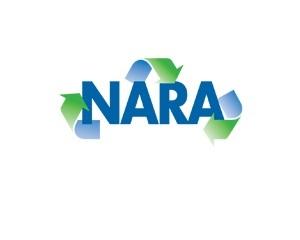Implications of Feeding Fat to Dairy Cows
Feeding Fat to Dairy Cows
Article is excellent, but what about the digestibilty of whole sunflower seed in Ruminant and its cost effectiveness. Commercial fat products like Inert fat dont change rumen fermentation and they are very helpfull in maintaing body scores and these are also helpfull to overcome Negative energy balance which could effect the reproductive performance.
The article about feeding Fat to Dairy Cows is very good. the limit of supplementing fat has been given to as 5[percent] at the same time importance of inert fat has been described but threshold limit has not been prescribed.
Good article about feeding Fat to Dairy Cows. If you feed vegetable oils, it is best that you increase saturation. also to keep fat uniform and probably better utilized it is desirable to add emulsifiers. The addition of antioxidants such as bha and bht to good quality fat is also important. I recommend the use of edible fats.no amount of processing will make a rancid fat suitable to feed unless it goes through the expensive process of refining and deodorization. Due to off-grade fats being used as biofuel, all fatty materials are becoming very costly and consideration should be given regarding usage and to what degree.
Jack Rovics, PhD
Good article about feeding Fat to Dairy Cows. considering a 3% of inert fat you can rise to 8% dietary fat.
i feed the end product of palm oil and would like to ask if thats ok,my cows are all dairy cows and i feed around 1kg per cow twice daily only..can anyone reply please?
Very comprehensive article about Feeding Fat to Dairy Cows. Canola is the cheapest sourse but its hard coat. can it be used semi processed but what about cotton seed which is getting popularity.
Regards
Feeding dietary fat is often practised. In order to its interference in rumen metabolism the process technologies have been developed. Now while supplementing dietary fat in ration one should confirm its requirement. Is it for offseting the metabolisible energy oor to incorporate in milk fat. It is mostly used as an energy source to meet the ME requirement. It is prudent to note the degradation of fatty acids to acetic by releasing colossal amount of ATP but needs oxaloacetic acid for its removan from the system unless it inuces the formation of acetone bodies. Therefore one should carefully balance the ration while supplementing dietary fat. Another p;oint to be taken care of is fatty liver syndrome Some thoughtd only


In Gujarat,India ,dairy cattle are fed whole cotton seed after boiling 1-2 kg , coconut oil immediately after calving to 1 month period and they also feed whole grain also boiled one and veterinarians are attending the cases of ruminal acidosis ( about 40 % ) after 1 month of calving. The dairy co-operatives also create awareness regarding this but still they get the cases. Surprisingly those who don't fed their animals dense feed(Energy rich) during early lactation the animals suffer from ketosis. As the rumen protected fats are costly the farmers cannot afford. So is there any definite solution for this ?
Dr.Dasharath Thakor
Assistant Manager- Dairy Farms,
Vivante Pure Foods Private Limited, Ahmedabad.
Here in the UK we have developed over the years a unique process of delivering supplemental fat to the animal. A carefully formulated blend of unsaturated and saturated fats is heated to a specific temperature and applied on to a cereal carrier base and allowed to cure for a few minutes into a dry free flowing product. The technology allows the fat molecules to be absorbed into the matrix of the base material and facilitates slow release in a way that does not upset rumen fermentation. This way, significant quantities of the fats escape microbial lipolysis to be digested and absorbed down stream with more energetic efficiency. There is also a synergistic effect on the energy yield when a mixture of different fats is fed instead of single fat. In addition, this technology allows the melting point of saturated fatty acid such as palmitic acid in the blend to be lowered to a point that a point that facilitates enzymatic attached thus avoiding oil slick that is common with saturated fat supplements.
Read: What to consider about Commercial Fat Supplements

Dear Dr. John SIr, Are you consultant to Gulf dairy farms? Sir you have written that in gulf yoy are feeding whole grain,corn and protein.So can you give the total ration formulation of the same ?
Dr Thakor, Yes I give consultancy for farms and feed plants in Gulf too. I can give TMK formulations on consultancy arranments. Please contact me directly on my email



.jpg&w=3840&q=75)













.jpg&w=3840&q=75)